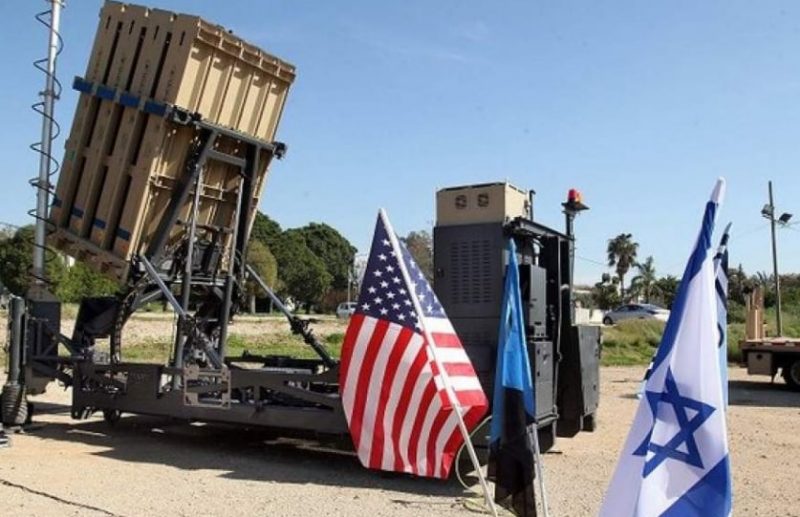Saudi Arabia Begins Purchasing Weapons from Israel
A new wave of special arms purchases by Saudi Arabia and the UAE has begun, which is of great importance for regional equations in the Middle East. The strictness of the U.S. regarding arms sales in the first year of President Joe Biden’s Democratic presidency marked a serious shift in Washington’s rhetoric and policymaking towards these two countries, especially Saudi Arabia. Specifically, the Yemen crisis and Bin Salman’s war-mongering in that country were issues that both Biden and various factions of the Democratic Party were very sensitive about and remain so. Nonetheless, it was not expected that this strict policy towards the Saudis and Emiratis would be more than the maximum and serious discourse of the Biden administration. The intertwining of U.S. interests with Saudi Arabia in multiple cases, the financial and political influence of Saudi lobbies in Washington, and most importantly, the threat of Iran, which the Americans also agree with the Saudis on regarding its danger, created multiple layers of bargaining in favor of the Saudis. In November 2021, the sale of ground-to-air defense systems to Saudi Arabia worth $650 million was approved by the Biden administration. The sale of these defense systems, precisely because of their defensive nature, was not in contradiction with Biden’s declared policies. However, many Democrats were angered by the contract, and a proposal to halt the sale of these systems was sent to the Senate, which the Saudi lobby easily quashed with the support of Republicans and a few Democratic senators. In July this year, serious news emerged about a fundamental change in policymaking in the Biden administration, indicating the opening of the path for the sale of offensive weapons to Saudi Arabia. However, there is still no news of such contracts being realized. If there is any news, it is fresh news about new purchases by Saudi Arabia and the UAE.
Purchasing in Washington
Exactly a week ago, it was first the Pentagon that confirmed the purchase of advanced Patriot systems by Saudi Arabia, and then the sale approval was confirmed by the U.S. State Department. These systems, along with all their technical components, will include 300 missiles, and the value of the Saudi purchase contract is $3 billion. These advanced and updated systems are produced by Raytheon. The goal and justification for selling these systems to Saudi Arabia is to empower the country to defend itself against Houthi attacks. Experts had reported a decrease in Saudi Arabia’s stock of ground-to-air defensive missiles. On the same day the news of this deal was announced, another news was also formalized, which was the extension and strengthening of the ceasefire in Yemen. On the same Tuesday, the U.S. State Department announced that it had also approved the sale of special defense systems to the UAE. Lockheed Martin, a well-known company, will sell 96 missiles and the technical components of the famous THAAD systems to the UAE in a contract valued at $22 billion. The U.S. Department of Defense’s statement about this specific contract is very interesting. In this statement, the purpose of selling these defense systems to the UAE is to increase the country’s defensive capability against ballistic missiles and reduce the UAE’s dependence on the U.S.
Purchasing in Tel Aviv
The idea that one day Saudi Arabia would purchase weapons from Israel could have been merely the initial concept of a comedy film just a few years ago. However, developments in the relationships between Gulf Arabs and Israeli politicians, security officials, and businessmen in the past decade have gone beyond imagination. In the process of research activities and production in the defense industries, the collaborations between Israelis and their American partners are the most advanced example in the world. Joint production and brilliant updates of missile defense systems, which have led to major innovations in the creation of the Iron Dome system, are only a small part of Israel’s achievements as a result of cooperation with the U.S. Israel benefits from a multi-layered missile defense structure, with the Iron Dome being just one layer of this defense system. With the opening of the path for Gulf Arab arms purchases in Tel Aviv, three specific types of defense systems are already on display, for which the Saudis and Emiratis can write checks. If a sign is needed for the initial and simple steps to start such interactions, that sign would be the secret meeting a few months ago of senior American and Israeli defense officials with Saudi, Qatari, Egyptian, Emirati, Jordanian, and Bahraini military commanders, which has opened up new cooperation between the Arabs and Israel.
Purchasing Korean Goods
In the year 2000, South Korea was the thirty-first largest arms exporter, and by 2021, it had become the eighth in this ranking. In the four years leading up to 2021, South Korea’s military exports grew by 177%. South Korea’s high technical and military capability has not gone unnoticed by the Gulf Arabs. Apart from South Korea’s cooperation with the UAE and building a nuclear power plant for them, the large contracts for the sale of medium-range missiles to the UAE at the beginning of this year attracted a lot of attention. Saudi Arabia and the UAE, which lead military purchases in the Gulf, continue their market exploration, and in this context, the UAE comfortably signed an $18 billion contract to purchase French fighter jets. What remains to be seen is the writing of purchase checks in Israel.

